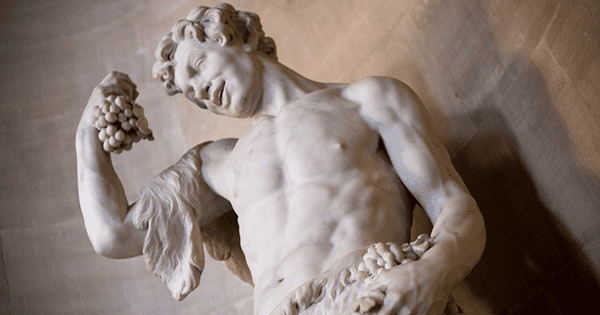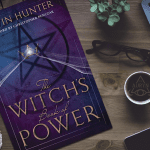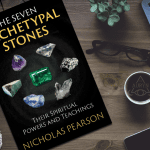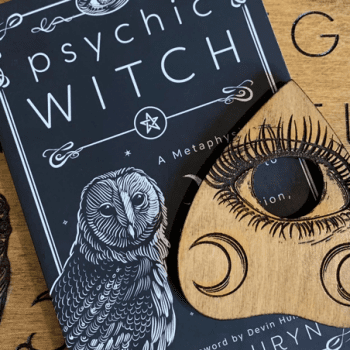
A statement that I hear constantly in Pagan and Witchcraft circles is that “the gods aren’t archetypes”. This has me scratching my head a bit. When I ask people who say this what they mean I tend to find that they have a misunderstanding of how they’re understanding the concept of an archetype. They make statements such as “The gods aren’t archetypes – they’re real!” I think this stems from a lot of 101 books on paganism, Wicca and witchcraft where I have found a lot of authors seem to misunderstand the concept of archetypes and define them incorrectly.
I have had a long lasting love affair with the works of Carl Jung for many years. His work has influenced much more of modern alchemy, occultism, metaphysics and spirituality than most seem to recognize or admit. Archetypes are a concept central to much of Carl Jung’s studies and writings. This has also been dived into in more depth by other famous students of Carl Jung such as Joseph Campbell. We can trace the word to Sir Thomas Browne and Francis Bacon who both used the word and concept in their writings. We even find the concept, though not called “archetype”, in the writings of Plato as well.
“My views about the ‘archaic remnants’, which I call ‘archetypes’ or ‘primordial images,’ have been constantly criticized by people who lack a sufficient knowledge of the psychology of dreams and of mythology. The term ‘archetype’ is often misunderstood as meaning certain definite mythological images or motifs, but these are nothing more than conscious representations. Such variable representations cannot be inherited. The archetype is a tendency to form such representations of a motif—representations that can vary a great deal in detail without losing their basic pattern.”
– Carl Jung
Man and His Symbols
So what exactly are archetypes? As Jung states above archetypes are “primordial images” engrained into humanity itself. They are innate prototype models of universal ideas, most often roles, which we can identify in mythology and within ourselves. For example, the idea of “Mother” is an archetype as is “Hero”, “Trickster”, “Lover”, “Destroyer”, “Ruler”, “Explorer”, “Hunter” and even “Witch”. These are primordial concepts of roles that we see in every culture throughout time. They are universal and universally understood. Likewise, there are also divine archetypes in almost every culture such as “Creator Deity”, “Grain Goddess”, “Mother Goddess”, “Psychopomp”, “Earth Mother”, “Warrior God”, “Trickster God”, “Love Deity”, “Dark Goddess” and many more.
As you can see, even we as humans are archetypal. Does that make us solely archetypes? No. But we do indeed embody archetypal roles. Are the gods archetypal? Yes. It would be extremely difficult, if even possible to find a deity that does not fit into a divine archetype. Does this mean that the gods are only archetypes? I think that’s up to the individual to decide based on their interaction with deity. I do not personally believe they are just archetypes, though I believe that the egregoric creation of a deity in a culture involves tapping into pre-existing divine archetypal energies and creating something new through time, energy and worship. It’s that old “chicken or the egg” question – or rather “did the gods create us in their image or did we create them in ours?” Which my answer to that is simply “yes”.
The idea that archetypes are solely psychological comes from more modern mundane oriented Jungians who try to make a lot of Jung’s writings more “acceptable” and “digestible” to modern academia who tend to scoff at Jung’s heavy mysticism and attempt to appease to a wider population of people. Jung himself realized that the spirits that he interacted with were archetypal but that they also existed, thought, and acted independently of himself.
It was his belief that archetypes emerged from the Collective Unconscious, which is less of a psychological concept and more of a mystical concept of a universal database of information that each human has access to and which connects us all – a collection of every human being’s experiences, dreams, myths and thoughts. It parallels’s nicely with the metaphysical concept of an Akashic Records or Akashic Library. The Collective Unconscious is something we’re all tapped into but predates the formation of the human mind itself, as it is an intangible thing which does not reside within the brain itself. Yet we are all universally psychically plugged into it at different degrees.
So while I myself embody many archetypes – that of witch, son, brother, writer and boyfriend. That does not make me purely just an archetype. It also doesn’t mean every witch and I are the same person with different names or the same son with every name and so on. We are obviously unique and individual – but we share the same roles and titles that are often universally understood. Likewise, I feel it’s the same for the gods. I personally do not believe they are just “imaginary” or “purely psychological constructs” but even if they were (and you are definitely free to believe so) an occult elder of our past had some interesting thoughts on such topics.
“To say that a thing is imaginary is not to dispose of it in the realm of mind, for the imagination, or the image making faculty, is a very important part of our mental functioning. An image formed by the imagination is a reality from the point of view of psychology; it is quite true that it has no physical existence, but are we going to limit reality to that which is material? We shall be far out of our reckoning if we do, for mental images are potent things, and although they do not actually exist on the physical plane, they influence it far more than most people suspect.”
– Dion Fortune
Spiritualism and Occultism






















